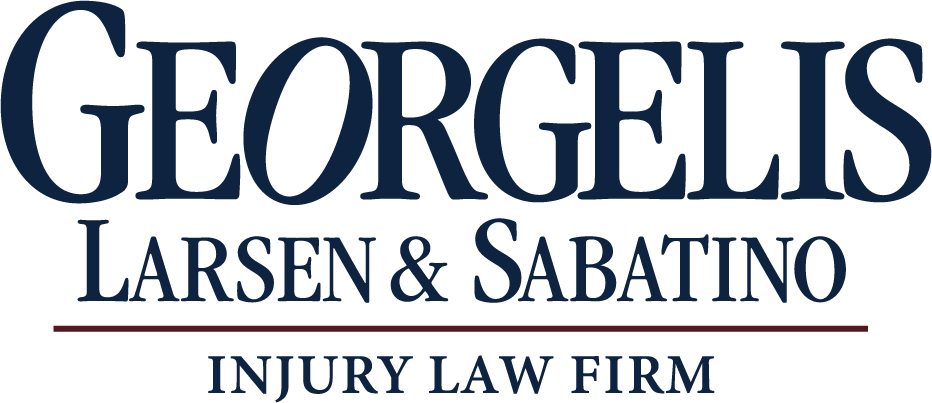Understanding Different Types of Workers’ Compensation Benefits

Workers’ compensation is a type of insurance that provides benefits to employees who have been injured or become ill as a result of their job. This coverage is required by law in most states and is meant to protect both the employer and the employee in case of work-related injuries or illnesses.
There are different types of workers’ compensation benefits that an employee may be eligible for, depending on the severity of their injury or illness. These benefits aim to provide financial support for medical expenses, lost wages, rehabilitation services, loss of a body part and scarring/disfigurement.
If you’ve been injured on the job, it’s important to understand the different types of workers’ compensation benefits and when they may apply to your case.
Let’s take a close look at the different types of benefits offered through the Pennsylvania Workers’ Compensation system and review what you should do if you are injured at work.
Different Types of Workers’ Compensation Benefits
Many workers are surprised to learn there are different types of workers’ compensation benefits. Some are designed to help with medical bills, others are meant to replace lost wages, and yet others compensate for scarring and disfigurement. Here are the different types of benefits offered to an injured worker.
Medical Benefits
One of the main types of workers’ compensation benefits is medical treatment coverage. This typically covers all reasonable and necessary medical treatment related to the work injury or illness, such as doctor’s visits, hospital stays, surgeries, prescription medications, physical therapy, and other related treatments. These benefits are often paid directly by the employer or their workers’ compensation insurance carrier.
Wage Replacement Benefits
Wage replacement benefits are another crucial part of workers’ compensation. These benefits are applied when employees experience a loss of earnings because of a job-related injury or illness. The type of benefit depends on how severe the injury is and how long it might take for the employee to be able to perform their pre-injury job.
Temporary Total Disability Benefits: If you’re recovering from an injury and can’t work, you may receive temporary disability benefits. They cover a portion of the wages you’ve lost during your recovery period. It’s like a financial support to tide you over until you’re back on your feet.
Typically, the employer or insurance company will utilize an injured worker’s earnings for the year preceding the injury to calculate an average weekly wage. This includes regular salary, overtime pay, bonuses and the like. Once the average weekly wage is ascertained, in most case, two-thirds of that amount is the injured worker’s weekly compensation rate, or the amount they receive (tax-free).
Temporary Partial Disability Benefits: If you have returned to work following an on-the-job injury but are still experiencing a loss of earnings (as compared to your average weekly wage), it is likely that you will be entitled to receive temporary partial disability benefits. These benefits are equal to two-thirds of the difference between your pre-injury average weekly wage and your current (post-return to work) weekly earnings. Temporary partial disability benefits are available for a total of 500 weeks.
In simple terms, wage replacement benefits are there to support you financially when you can’t work due to a work-related injury or illness.
Specific Loss Benefits
Specific loss benefits under workers’ compensation are designed to assist employees who have suffered a permanent and complete loss of use of a body part or function, like a limb or a sense. These benefits can act as an additional layer of support on top of any wage replacement benefits the employee might already be receiving.
Specific loss benefits are a recognition of the life-changing nature of the injury. Whether it’s a loss of a hand, foot, or a crucial sense like sight or hearing, these benefits offer financial support to help the employee adapt to the challenges associated with the permanent and complete loss.
Scarring/Disfigurement Benefits
If a worker injured on the job suffers scarring or disfigurement to the head, face or neck, they will be eligible for permanent scarring/disfigurement benefits paid on top of any other type of benefits received. This includes scarring that is caused by surgical intervention related to a work injury.
If the parties cannot agree upon a fair and reasonable amount to be paid for scarring or disfigurement benefits, then a Workers’ Compensation Judge, upon reviewing the claimant, will make this determination.
Lump Sum Settlements
This option may seem attractive initially as it provides a single, larger sum. However, it’s crucial for employees to weigh the long-term consequences before accepting. It involves a trade-off, offering immediate financial closure but potentially limiting future coverage.
While a lump sum settlement can provide financial relief in the short term, it’s essential to balance immediate needs with future considerations. Carefully assessing the long-term impact is crucial to ensure that the settlement amount aligns with the ongoing financial requirements resulting from the injury.
If you are offered a lump sum settlement, consult with a workers’ compensation attorney before making a decision. They can help you understand the full scope of your injury and its potential future implications. Additionally, they can negotiate with the insurance company to ensure that you receive a fair settlement amount that adequately covers all current and future expenses.
Death and Dependency Claim Benefits
Should a worker tragically pass away due to a job-related injury or sickness, their dependents could potentially qualify for death and dependency compensation benefits. These death benefits are typically paid out in a lump sum and can include compensation for funeral expenses, lost wages, and ongoing financial support for dependents.
It is important to consult with a workers’ compensation attorney to ensure that all eligible benefits are being claimed.
What to Do If You’re Hurt at Work
If you are injured while on the job, it is important to act quickly to ensure that you receive proper compensation and medical treatment. Follow these steps if you find yourself in this unfortunate situation:
- Report the Workplace Injury Immediately: It is crucial to report any work-related injuries or illnesses as soon as possible. This will help you establish a timeline of events and ensure that your employer is aware of the incident. While you have up to 120 days to report your injury, if you notify your employer within 21 days, wage loss benefits will start on day one. If notice is given beyond the 21-day mark but prior to the 120-day period, indemnity benefits—if warranted—will begin on the date notice is given. Make sure to be specific about your injuries and supply written documentation of your case to your employer.
- Seek Medical Attention: After reporting your injury to your employer, seek medical attention. You are required to use one of the medical professionals on the “panel list” approved by your employer and their insurance company. If your employer does not have a list of approved medical professionals, you can see whomever you choose.
- Document Everything: Keep detailed records of all medical treatments, missed workdays, and other expenses related to your injury.
- Contact a Workers’ Compensation Law Firm: The workers’ compensation process can be complicated, and many workers find their claims are initially denied. Working with a workers’ comp attorney can help alleviate the stress of navigating the system alone.
- Follow Your Doctor’s Recommendations: Be sure to follow any instructions or restrictions given by your doctor to ensure proper healing and avoid aggravating the injury.
- Communicate with Your Employer: Keep your employer informed of your progress and any changes in your condition. This will help them make necessary accommodations for your return to work.
Workers’ Comp Attorneys in Lancaster, Pa.
At Georgelis, Larsen & Sabatino Injury Law Firm, we focus our efforts solely on handling workers’ compensation and personal injury claims. Our extensive background, experience, and track record of success in championing the rights of injured workers provide us with a comprehensive understanding of the legal process. This enables us to employ effective resources and strategies to safeguard employees’ rights and secure favorable outcomes for our clients in their petitions against uncooperative employers and insurance companies.
It’s important to note that employers typically have legal teams dedicated to minimizing their financial responsibilities in the aftermath of a workplace injury. To ensure a level playing field, it’s only just that you have equal representation. Our committed, assertive, and seasoned workers’ compensation attorneys stand ready to advocate for your rights.
If you’ve sustained an injury, reach out to us today at 1-800-HURT-NOW for a complimentary consultation, or connect with us online. We’ll assess your case at no cost, and our fees are contingent on successfully winning your case. At our firm, where we’ve won 99% of our cases and secured over $90 million for our clients. Remember, Winning…Is No Accident™.




